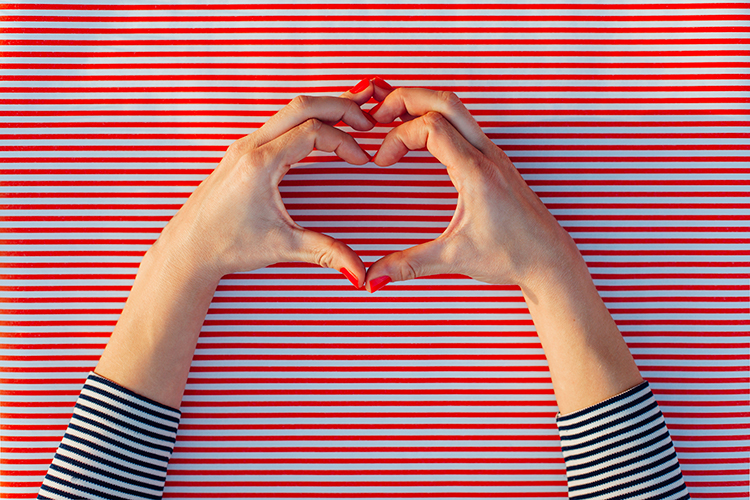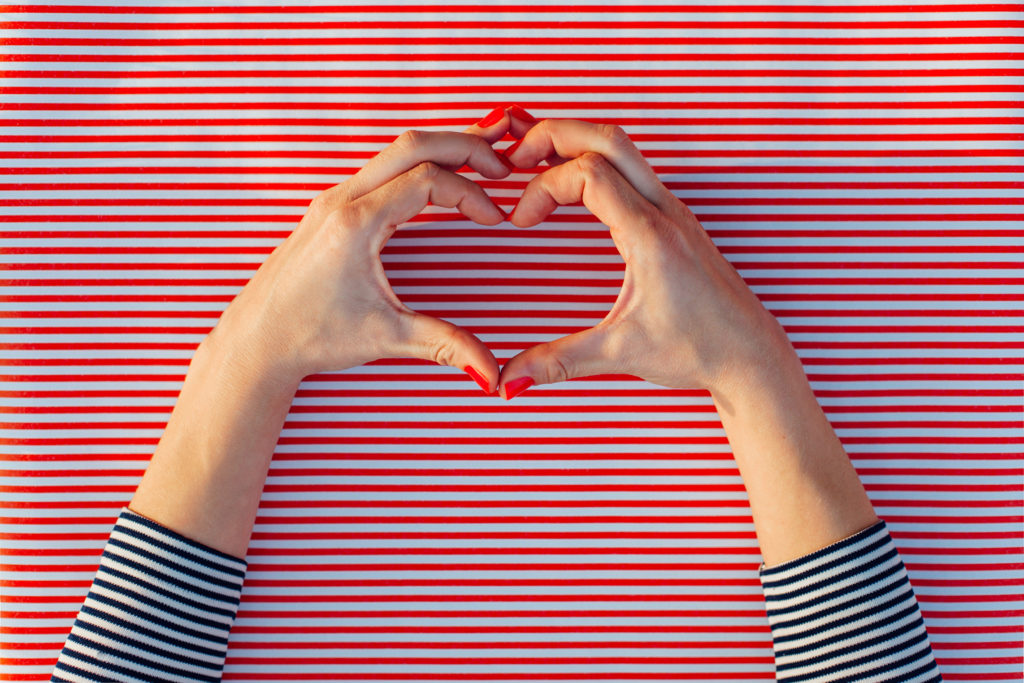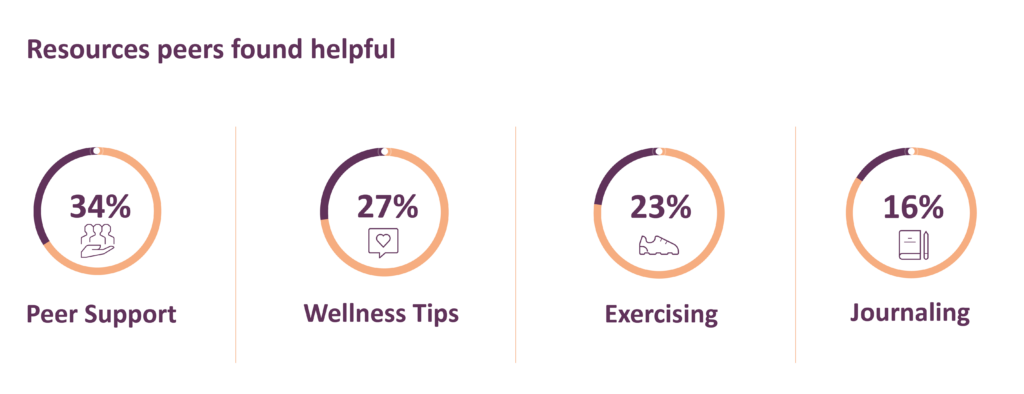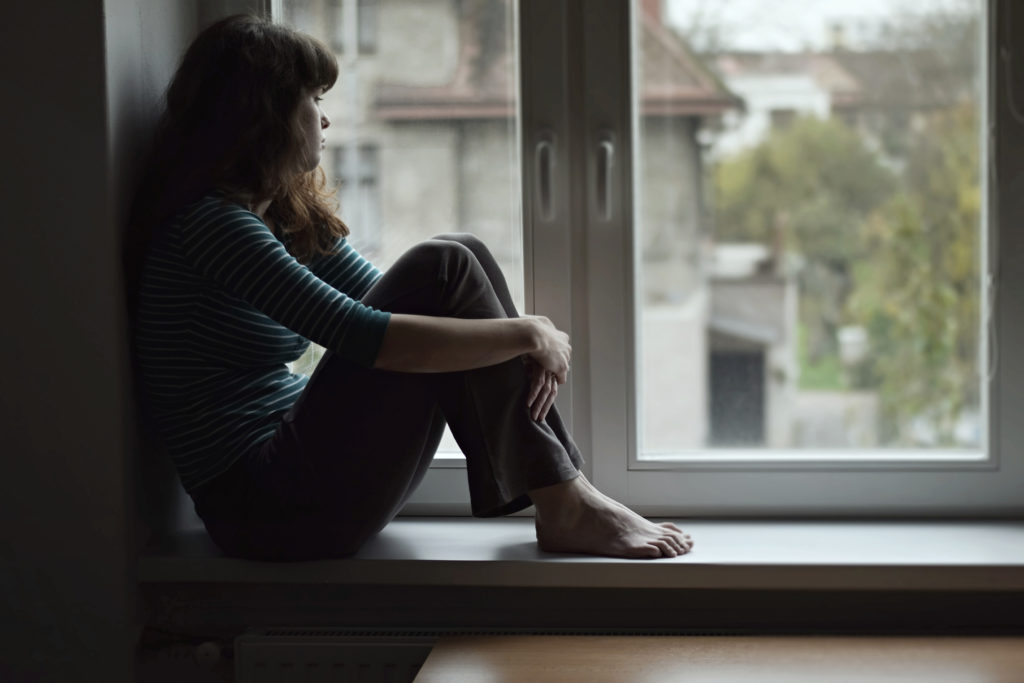
Everyday Resources
Wellness Wheel
The DBSA Wellness Wheel is an easy-to-use tool that gives you a complete picture of the progress you’ve already made in your wellness journey. As you create your own wheel, you will see your strengths in perspective and discover ways to move toward the life you want to live.
COVID-19 Wellness Workbook
This free, downloadable workbook complements the DBSA Wellness Wheel, offering insights and suggestions to help you manage the pressures that are part of daily life during the pandemic.
Mood Crew
Early childhood is a time when young ones are learning about emotions and finding ways to express them. This fun and engaging educational program, designed for ages 4 to 10, helps adults open a positive conversation about feelings with children.
DBSA launches new online support group for those with dual disorders
Do you live with both a mood disorder and a substance abuse disorder? You are not alone. DBSA has created new, free support groups for people just with co-occurring disorders.
Ask the Doc: How can I tell if I’m depressed?
Because of COVID-19, I’ve been experiencing what I think might be depression. Is it possible that the pressures I’m under are causing depressive symptoms, even if I’ve never felt this way before?
Read Dr. John Markowitz’s Full Answer
DBSA launches new online support group for all military Veterans
People who have served in the U.S. Armed Forces often face unique mental health concerns. Earlier this month, DBSA launched a new virtual support group for all individuals who have served in the military. This new support group is open to all Vets, all ages, all branches of the military. If you or someone you know can benefit, we hope you will join us.
Prescription help during the COVID-19 crisis
Are you concerned about getting the medications you need right now? Many drug makers have special assistance programs that can help.
Find Patient Assistance Programs
Mental Health Coalition resource library
DBSA is proud to be a member of the Mental Health Coalition. They have compiled a resource library for general mental health wellness in addition to resources specifically for the BIPOC community, Black community, COVID-19 support, and LGBTQ resources.
Your Voice
500 responses and counting: DBSA’s nationwide peer and family survey
Hundreds of you have weighed in on the resources you need right now: wellness info, journaling prompts, workout tips and access to peer support. Here’s a look at your responses to our Wellness Resources Survey.
Your opinion counts! Ask Congress to help DBSA support groups move online
With millions of people sheltering in place, DBSA needs to help our 500+ local support groups move to online platforms. We’ve asked Congress to allocate funds that will help our support groups make the transition. Help us advance this crucial legislation by sending a letter of support to your U.S. elected officials now.
Podcasts and Videos
Wellness Wheel Podcast: Creating health in your working life
In our ongoing podcast series based on the DBSA Wellness Wheel, we welcome Alexandra Kopack, an expert in behavioral economics who focuses on the science of happiness. Hear Alexandra’s thoughts on occupational wellness, with helpful advice for managing work pressures in the time of COVID.
https://soundcloud.com/dbsalliance/occupational-wellness-with-alexandra-kopack-wellness-wheel-podcast
Listen to more episodes of the Wellness Wheel Podcast
Physical Wellness with Dr. Holly Swartz
Focusing on finances with Dr. Thomas Richardson
Tending to your Environmental Wellness with Dr. LaGenia Bailey
Finding the right activities for your intellectual wellness with Dr. Wendy Linderholm
Exploring your Social Wellness with Beth Vaccaro, LPC
Finding meaning during challenging times with Sue Phillips
Podcast: How daily rhythms support our wellbeing
In a new podcast, YAC members explore the value of creating a simple, healthful routine that sustains us, even in the most stressful and challenging times.
https://soundcloud.com/dbsalliance/young-adult-council-can-routines-improve-your-mental-health
Video: How caregivers are coping at home
Hear from Keith Johnson, who attends a weekly DBSA family and friends support group, as he shares his family’s experiences during quarantine and offers suggestions for others who are caring for loved ones.
Video: Building Mental Resilience
Michael Pollock, CEO of DBSA joins other mental health experts for a discussion on strong mental health where he talks about the importance of checking in and listening to the people we care about that may be struggling or already managing a mental condition during the public health crisis. Watch the full series
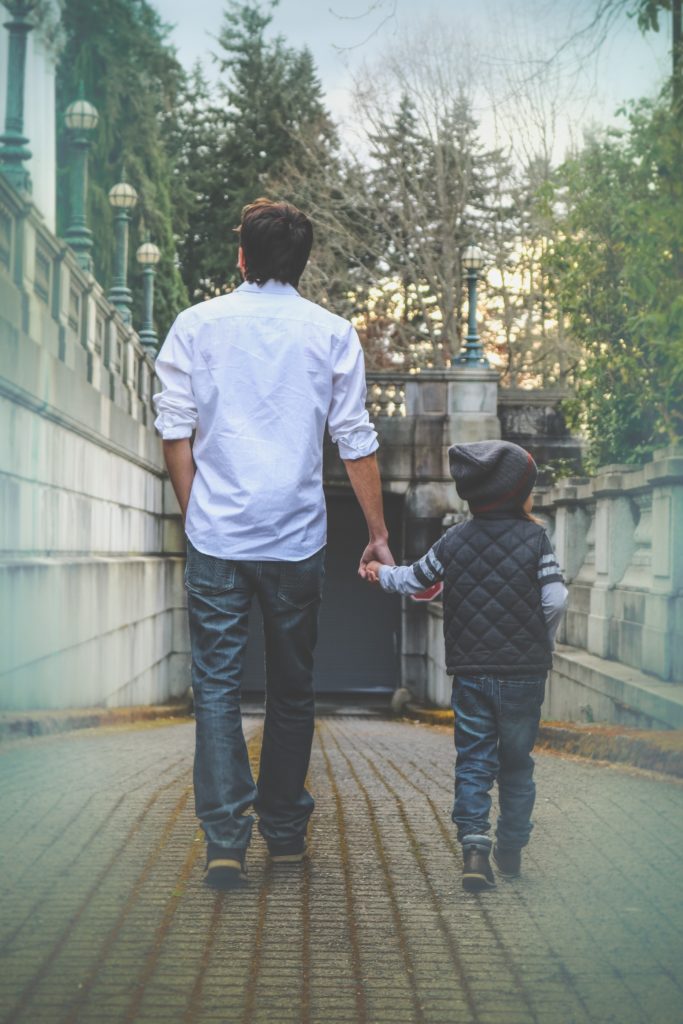
Family and Friends
Sharing resources for families of color
As we recognize BIPOC Mental Health Month, we are confronted with the startling realities that affect far too many young people and families across the country.
Managing the disappointment of missed celebrations
Spring and summer usually bring graduations, concerts, proms, and more – but with social distancing, our celebrations have taken a dramatic shift. Here are 3 thoughtful ways to address sadness, grief, and disappointment with your children as you help them build resilience.
How do children, teens, and young adults respond to scary news headlines?
From eUpdate, our popular monthly newsletter, insights for parents and family members who are worried about what their children are seeing and hearing from the media right now.
Learn about children and media anxiety
Staying Healthy
Managing everyday life in times of stress
Here are two great wellness tips from the DBSA Wellness Wheel

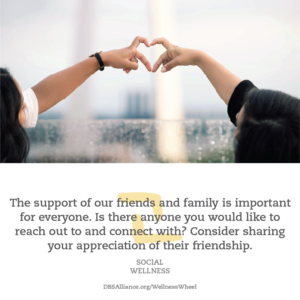
DBSA in the News
Heartbreaking Loss Amidst the Pandemic: Our Mental Health Crisis
The DBSA team offers our heartfelt condolences to Representative Jamie Raskin and his family, who lost their 25-year-old son, Tommy Raskin, to depression on New Year’s Eve.
Advocates praise new National Suicide Prevention Lifeline law
DBSA’s Dr. Roger McIntyre praises the news that FCC has adopted rules to establish 988 as the new, nationwide, three-digit phone number for Americans in crisis to connect with suicide prevention and mental health crisis counselors. The new number is expected to be active by July 2022.
Racism’s threat to our nation’s mental health
The death of George Floyd is part of a much larger reality that affects the mental health of millions, says DBSA CEO Michael Pollock. Here are the immediate actions DBSA recommends as the country seeks perspective and healing.
DBSA’s online support resources featured in Chicago Tribune
The Tribune story opens with Kaitlin, a DBSA support group leader in downtown Chicago who knows how crucial it is to find people who understand and care about you, especially now.
An open letter to The View: let’s support people living with bipolar disorder
Read what Michael Pollock, our CEO, had to say when one host on the popular ABC daytime talk show made a surprising remark about mood disorders.
Wall Street Journal talks with DBSA about mental health risks during COVID-19
Dr. Gary Sachs, a leading mental health expert and member of DBSA’s Scientific Advisory Board, offered ways to manage stress, anxiety and loneliness in a conversation with the Wall Street Journal.
Other Resources
The list below includes organizations and resources outside of DBSA. We have previewed these offerings and feel they may be helpful, but we cannot assume responsibility for the content or accuracy of the material they provide.
- US Government information about financial assistance during the pandemic
- US Government information about receiving assistance with bills
- CDC information about the COVID-19 vaccine
- US Government response to COVID-19 and information for higher risk populations
- States and territories have established their own resource plans as well. You can find a directory of each health department website here.
- FreeWill, free estate planning tool
- Tools for supporting emotional wellbeing in children and youth (Herramientas para apoyar el bienestar emocional en niños y jóvenes)


